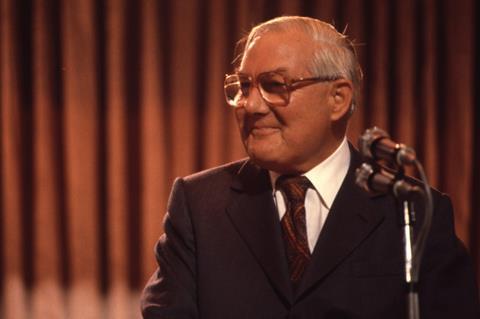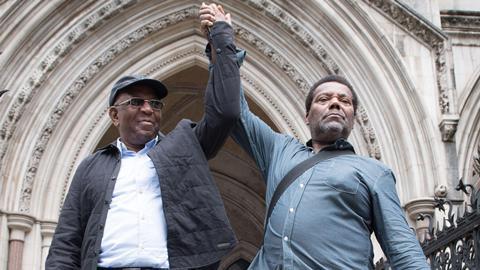The Police and Criminal Evidence Act transformed the criminal justice process. As it turns 40, Catherine Baksi canvasses opinion on whether the legislation is showing its age
In the 1950s people were convicted and hanged on the basis of uncorroborated police evidence. But it took until the early 1980s for the public and parliament to lose faith in police practices. High-profile convictions were publicly questioned. In the process, credible evidence was produced of police brutality and the manipulation of evidence. The legislative response was the Police and Criminal Evidence Act 1984 (PACE).
The act transformed the way suspects were treated at the police station, introducing tape recording of interviews, interpreters, appropriate adults and control over the length of pre-charge detention.
Yet, 40 years on, opinion is divided on whether PACE set the gold standard, or if it merely left unfinished business.
‘Foundational’
Michael Zander, emeritus professor of law at the London School of Economics, says PACE put the process of dealing with suspects onto a new ‘professional basis’. The act and the PACE codes of practice, he adds, were ‘an immense step forward in regulation and accountability of policing’, and put an end to the ‘gross police misconduct’ that had led to miscarriages of justice.
PACE predated the quashing of the murder convictions of the Guildford Four and the Birmingham Six, but the emerging evidence of police misconduct in both cases helped shape law reform. Importantly, PACE gave suspects the right to free representation and legal advice at the police station.
Together with the Prosecution of Offences Act 1985, which established the Crown Prosecution Service, PACE represents a ‘foundational piece of legislation’ that, despite its faults and limitations, helped to make criminal processes more rational, police investigations more transparent, and the police more accountable, says Ed Cape, emeritus professor of criminal law and practice at the University of the West of England.
Duty solicitors
Crucial to the right to representation was the creation of the duty solicitor scheme, initially set up voluntarily by local solicitors and now managed by the Legal Aid Agency.
The scheme established rotas to make solicitors available to attend police stations around the clock, 365 days a year. But the system needs to be resourced to operate as it should. Four decades on, the fall in duty solicitor numbers risks undermining the core protection introduced by the 1984 act.
The Law Society warns that many individuals are at risk of being unable to access their right to a solicitor and free advice, due to the growing crisis in the duty solicitor scheme.
Duty solicitors funded by legal aid, the Society explains, receive some of the lowest rates of pay in the profession. The workforce is getting older and many criminal legal aid lawyers are quitting because the work is no longer financially viable.
The number of duty solicitors providing representation at police stations has fallen by 1,446 since 2017 – a 26% drop. The Society highlights the risk of miscarriages of justice if duty solicitor numbers continue to decline.
'An effective duty solicitor scheme is vital to properly functioning law enforcement… If the duty solicitor service fails, our justice system fails'
Kevin Foster MP
Kevin Foster, Conservative MP for Torbay, took up the matter in a Westminster Hall debate on 13 March, highlighting the stark impact of the decline. Nationally, less than 4% of duty solicitors are under 35; the average age in 2021 was 49; and there are none aged below 35 in Cornwall, Lincolnshire, Wiltshire and Worcestershire, he said.
The result, said Foster, is that ‘with expected retirements, rotas will shrink even further, to the point where there is simply no one left to take part’. Highlighting the crucial role of duty solicitors, he said: ‘They allow investigations to move forward quickly and are critical to ensuring that victims and defendants get justice.

‘An effective duty solicitor scheme is vital to properly functioning law enforcement… If the duty solicitor service fails, our justice system fails,’ he said. That is because police interviews are delayed and victims find themselves waiting longer for justice, which ‘may never come if the issues with the duty solicitor scheme are not addressed’.
Foster noted that almost half of defendants appearing in the magistrates’ courts on imprisonable summary offences did not have legal representation recorded on their case in the first half of 2023 – up from 35% in 2022.
Responding, justice minister Mike Freer said he was also concerned about the reduction in numbers. However, he claimed that since the government raised police station fees by 15% in line with the recommendation of the Bellamy criminal legal aid review, there has been an increase in duty solicitors registering for the scheme.
Between October 2022 and April 2023, Freer said, the number of duty solicitors rose by about 7.5%, suggesting it is ‘an early sign of at least some stabilisation in the scheme’.
The Legal Aid Agency, Freer noted, regularly reviews and monitors the number of duty solicitors and has arrangements in place to ensure schemes are fully covered, which he conceded ‘is sometimes a big ask’.
Pace setters
James Callaghan’s Labour government created the Royal Commission on Criminal Procedure, chaired by Sir Cyril Philips, following a series of miscarriages of justice. Its report, published in 1981, was the basis for the Police and Criminal Evidence Act 1984 (PACE), which was implemented by the Conservative government that succeeded Callaghan’s administration.
Michael Zander, emeritus professor of law at the London School of Economics, notes that there were two PACE bills, as the progress of the first was interrupted by the May 1983 general election. Both bills, he says, were furiously contested, with the Labour party and the civil liberties lobby protesting that the balance was tilted too far in favour of the prosecution.
While the act was passed in 1984, most of its provisions did not come into force until January 1986, points out Ed Cape, emeritus professor of criminal law and practice at the University of the West of England. The delay was to give time for training, changes in procedures, and for the codes of practice to be developed in a timely and orderly fashion. ‘What a contrast with much recent legislation,’ he remarks.
The Law Society responded by working with the then Legal Aid Board, now the Legal Aid Agency, to introduce the Police Station Accreditation Scheme, detailing the role of the police station lawyer.
Despite its problems, Cape says, the act ‘was and continues to be the most significant piece of legislation governing the early stages of the criminal process in my lifetime’.
Given that the act has been amended multiple times over the past 40 years, many regard PACE as in need of rationalisation and simplification. But, says Cape: ‘I doubt there is either the political will, or the expertise within the relevant government departments, to achieve rational and sensible reforms.’

Halting the decline
Law Society president Nick Emmerson nevertheless demands urgent investment, or ‘more solicitors will be forced out of the criminal defence profession, representation will become difficult to provide and there is a serious risk of miscarriages of justice’. He has also reiterated Chancery Lane’s pleas for the full implementation of the legal aid review’s recommendations in the wake of the Society’s successful challenge to the government’s decision not to do so.
Modern legislation
And what of criminal trials? These ‘are undoubtedly more fair and just as a result’ of PACE, says Ed Cape, a former solicitor and author of Defending Suspects at Police Stations. ‘When I started as a criminal defence lawyer in the early 1980s, police investigations and, particularly interviews of suspects, were largely unregulated.
‘It was easy for the police to fabricate confessions and other evidence adverse to the accused and hard to persuade a court that this was, indeed, the case.’
Cape says courts would routinely accept that a police officer could remember, verbatim, what had been said in lengthy interviews even though they were not contemporaneously recorded. PACE, together with some important Court of Appeal judgments, ‘effectively put a stop to that’.
Supplementing legislation with a Code of Practice, Cape notes, was a ‘masterstroke’, enabling the investigation stage of the criminal process to be regulated in detail – for example, stating that children and mentally vulnerable adults must normally only be interviewed in the presence of an appropriate adult.
The act, he notes, was regarded by many countries as a model of how to regulate the investigation stage of the criminal process, with many aspects of the regime finding their way into overseas legislation.
However, because of underfunding and attrition rates, Matt Foot, solicitor and co-director of the charity and law practice Appeal, highlights the ‘worrying’ fact that 50% of individuals are unrepresented at the police station and others get inadequate representation because of legal aid cuts.
Browbeaten
Without strong legal representation to protect people’s rights in interviews and identification parades, Foot argues that the police station remains a ‘fertile ground for people to be browbeaten and misunderstood or for false confessions’.
People are still very vulnerable in the police station, he adds, stressing that they face ‘a police interrogation’ rather than something akin to a job interview, where vulnerabilities are missed and misunderstandings are common.
While Foot agrees that the act was ‘clearly a positive reform’, he says that in some cases its provisions and guidelines are still breached or pushed to their utmost.
‘The idea that PACE has pushed all these problems into the past is not true,’ he insists. Foot cites the case of Andrew Malkinson, whose wrongful conviction for rape in 2004, based on now-discredited eye-witness identification evidence, was overturned by the Court of Appeal last year.
Home Office guidelines, says Foot, tell the police that they should interview suspects with an open mind. But, he says, it is still ‘genuinely rare that they do that’ instead of seeking to reinforce a theory and getting a charge. He suggests a culture change is still needed in most police forces.
Responding to these criticisms, deputy chief constable Nev Kemp, National Police Chiefs’ Council lead for custody, tells the Gazette that the act is ‘embedded in policing practice’ and forces are regularly inspected on compliance through unannounced inspections.
Last year, he adds, the service brought in Custody Detention Scrutiny Panels. These are now operating in most police force areas and include independent members who scrutinise custody performance.

Old school remnant – the Post Office
While not investigated or prosecuted by the police, the Post Office Horizon scandal is a vivid demonstration that ‘innocent people can come through the process without the flaws in evidence being revealed’, says Foot.
Evidence heard by the official inquiry led by Sir Wyn Williams is reminiscent of the way that the police interviewed suspects without a solicitor in pre-PACE days, Foot adds.
The Post Office, as an investigator and prosecutor, was subject to PACE, the Criminal Procedure and Investigations Act 1996 and the codes of practice issued under each. Yet the inquiry heard that its investigation and policy documents were not sufficient to ensure compliance.
Written evidence from Duncan Atkinson KC, who was instructed by the inquiry to analyse evidence relating to criminal prosecutions, says the ‘policy landscape for a significant period was not sufficient to ensure consistent and comprehensive compliance with a number of important aspects of the PACE and CPIA regimes’.
The Post Office ‘employed “toughs” who intimidated and bullied subpostmasters and extracted bogus confessions from them’, claims barrister Paul Marshall, who represented some of the wrongly convicted subpostmasters.
The subpostmasters, Marshall adds, were not legally represented and were ‘frequently deprived of the rights that PACE confers on them when subject to criminal investigation’. The evidence obtained as a result, he argues, was therefore ‘unreliable and inadmissible, but the Post Office still got its convictions’.
Despite the evidence demonstrating breaches of PACE and other professional conduct rules, Marshall also bemoans the lack of action taken against any lawyers involved. (So far.) And, Foot points out, for those wrongfully convicted following flawed inquiries the path to justice is painfully slow. Appeal is still dealing with pre-PACE cases where police wrongdoing allegedly contributed to miscarriages of justice. One high-profile pre-PACE case resolved only recently concerned the notoriously dishonest British Transport Police officer Derek Ridgewell. Those convicted of robbery offences due to his false testimony include the Oval Four and the Stockwell Six. (Ridgewell died in prison in 1982.) In January this year the Court of Appeal posthumously quashed the convictions of Saliah Mehmet and Basil Peterkin, who were convicted and jailed in 1977 on false evidence from the corrupt officer.
Weak sanctions
More widely, Ed Cape says, enforcement mechanisms for failure to comply with PACE and/or the codes are weak. ‘Depending on the circumstances and the nature of the breach, failures to comply may have no adverse consequences for the police,’ he adds, particularly in cases where a suspect pleads guilty because there will be no judicial oversight in those circumstances.
And, he adds, even relatively serious breaches do not necessarily result in exclusion of the evidence obtained. Where there is a serious breach, insists Foot, there need to be implications for officers, and prosecutions for misconduct in a public office or perjury.
'Forty years on, things have got no better. From the Macpherson Report in 1999 to the Casey Review in 2023, we see a clear ongoing failure to end institutionally racist police practices'
Tyrone Steele, Justice
PACE’s provisions have been revised through guidelines and legislation, many of which lawyers claim have arguably watered down suspects’ rights and given greater powers to the police.

Section 69, for example, introduced a rule that computer evidence was only admissible if it could be shown that the machine was used and operated properly. It removed a common law legal presumption that ‘mechanical instruments’ should be presumed to be in working order unless proven otherwise.
The section was removed following a 1995 Law Commission consultation paper Evidence in Criminal Proceedings: Hearsay and Related Topics.
A freedom of information request from computer scientist Steven Murdoch at University College London revealed that the Post Office supported the change, stating in its consultation response that the rule made prosecutions ‘somewhat onerous’.
Mixing the ingredients
One key area where PACE’s legacy is ‘clearly negative’ is stop and search, says Tyrone Steele, deputy legal director of the law reform group Justice. The act, he says, was born out of the recognition that police powers to stop and search suspects were disproportionately used on Black people. ‘But 40 years on, things have got no better. From the Macpherson Report in 1999 to the Casey Review in 2023, we see a clear ongoing failure to end institutionally racist police practices.’ PACE has simply ‘formalised the problem it was supposed to fix’.
Tana Adkin KC, chair of the Criminal Bar Association, concludes that overall ‘PACE provides the recipe for an honest and fair criminal justice process’. But echoing the call for more resources, she cautions: ‘It is the individuals mixing the ingredients who are important.’
Catherine Baksi is a freelance journalist
































3 Readers' comments